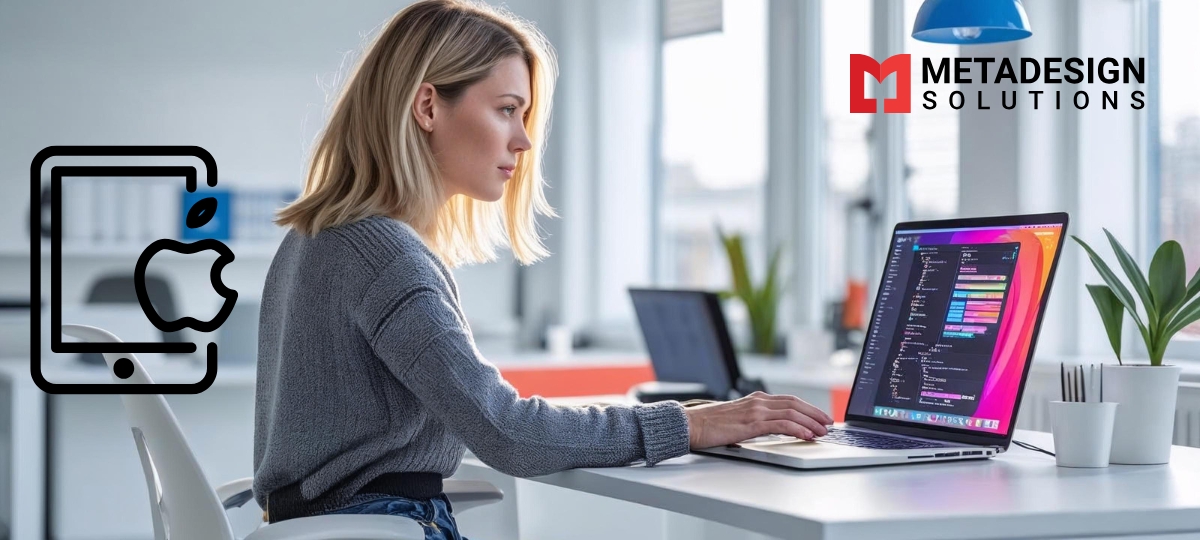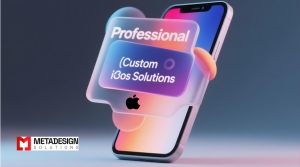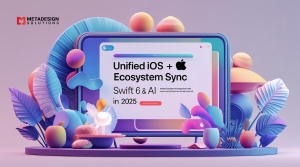Introduction:
In the ever-evolving world of mobile applications, personalization has become a key driver of user engagement. Custom iPhone App Development Services offer unique opportunities to close the personalization gap, providing users with tailored experiences that are not just functional but also emotionally compelling. With millions of apps in the App Store, the competition for user attention has never been fiercer. To stand out, developers must create addictive user experiences that keep users coming back.
This blog explores how custom iPhone development can close the personalization gap, enhancing user engagement and satisfaction. We will delve into the latest trends in personalized iPhone development, examine the technologies that power these experiences, and discuss best practices for designing apps that users love.
1. Understanding the Personalization Gap
What is the Personalization Gap?
The personalization gap refers to the difference between what users expect from an app in terms of personalized experiences and what the app delivers. In today’s app market, users expect tailored interactions based on their preferences, behavior, and context. However, many apps still offer generic experiences, which can lead to poor engagement and high churn rates.
Custom iPhone development, on the other hand, focuses on creating unique, personalized experiences for each user. By integrating data-driven strategies, developers can deliver content, features, and notifications that resonate with the individual user, thereby closing the personalization gap.
Why Personalization Matters in iPhone App Development
Personalization has become a critical component of modern app development because it enhances user satisfaction, increases engagement, and boosts retention rates. Apps that offer personalized experiences are more likely to create emotional connections with users, turning them into loyal customers. Research shows that users are more likely to continue using apps that adapt to their needs and preferences.
Key LSI Keywords: personalized experiences, user engagement, user retention, custom iPhone development, emotional connections
Bridge the Personalization Gap.
Partner with our team to build custom iPhone apps your users will love.
2. The Psychology Behind Addictive User Experiences
How Custom iPhone Apps Engage Users
Addictive user experiences are built on psychological principles that encourage users to return to an app repeatedly. Custom iPhone development allows for the design of apps that take advantage of these principles, such as:
- Variable Rewards: Apps that offer unpredictable rewards (e.g., new content, achievements, or surprises) keep users engaged and motivated to return.
- Social Validation: Many apps integrate social features, such as sharing achievements or content, which satisfy users’ need for social validation and encourage frequent use.
- FOMO (Fear of Missing Out): Personalized alerts and notifications about app updates or new content can trigger FOMO, prompting users to open the app more often.
Creating Emotional Connections with Personalized Features
Personalization allows apps to connect with users on an emotional level by offering tailored experiences. For instance, an iPhone fitness app that tracks progress and sends personalized workout recommendations based on user goals can create a deep sense of ownership and motivation. These emotional connections drive repeat usage and create a habit loop where the user feels compelled to keep using the app.
3. Technologies Driving Personalized iPhone Development
Artificial Intelligence and Machine Learning in Personalization
AI and machine learning (ML) play a significant role in enhancing app personalization. By analyzing user data, these technologies can predict user behavior, preferences, and needs, offering relevant content, products, or services at the right time. AI-powered recommendation engines are widely used in e-commerce, media, and streaming apps to drive engagement by suggesting personalized items or content.
Location-Based Personalization and Geo-Fencing
Geo-fencing allows iPhone apps to offer location-specific content and notifications. By integrating GPS and location services, developers can deliver hyper-relevant information, such as store discounts when a user is near a retail location or local event recommendations based on user interests.
Push Notifications and Smart Alerts
Push notifications are a powerful tool for personalizing user experiences by sending real-time, relevant information. Custom iPhone apps can use smart alerts to notify users about updates, new content, or activities based on their previous actions or preferences.
4. Key Strategies for Customizing iPhone Apps
Dynamic UI/UX Design for Personalization
User interface (UI) and user experience (UX) design are crucial to creating a personalized, engaging app. Dynamic UI/UX design allows apps to adapt based on user behavior. For example, an app could feature a dark mode option based on user preferences or change content dynamically based on user actions.
Personalized Content Recommendations
Personalized content recommendations are one of the most effective ways to keep users engaged. By analyzing user data, iPhone apps can suggest relevant articles, videos, or products based on past interactions, increasing the likelihood of user satisfaction and retention.
User-Driven Features and Custom Settings
Allowing users to personalize their app experience further increases engagement. Apps that let users customize their profiles, notification preferences, or display settings allow users to create an app environment that suits their needs, driving frequent use.
5. Case Studies: Successful Personalized iPhone Apps
Examples of Highly Engaging iPhone Apps
Several iPhone apps have successfully implemented personalized experiences to achieve high user engagement:
- Spotify: By leveraging AI and user data, Spotify creates personalized playlists, daily mixes, and song recommendations, keeping users engaged and increasing daily app usage.
- Uber: Uber personalizes ride suggestions based on user history, frequent locations, and preferences, offering a seamless and highly relevant user experience.
How Personalization Drives User Retention
Personalized apps foster a deeper sense of user loyalty and engagement. By providing tailored recommendations and content, these apps keep users coming back. The ability to adapt to individual user preferences makes the app feel more relevant, reducing churn rates and encouraging longer app sessions.
6. The Role of Data and Analytics in iPhone App Personalization
Gathering and Analyzing User Data
Effective personalization requires collecting and analyzing vast amounts of user data. This includes user behavior, demographic information, and device data. By utilizing analytics tools such as Google Analytics, Mixpanel, or Firebase, iPhone app developers can gain valuable insights into how users interact with their app and how to tailor the experience.
Leveraging Insights for Continuous App Improvement
Data-driven insights enable continuous improvement. By identifying user pain points, preferences, and usage patterns, developers can refine the app experience, making it more engaging and personalized over time.
7. Challenges in Personalizing iPhone Apps
Balancing Personalization and Privacy
Personalization comes with its challenges, particularly when it comes to data privacy. Developers must ensure that they are compliant with data protection laws such as GDPR and CCPA. Users should have control over the data they share, and apps should be transparent about how data is used to personalize experiences.
Overcoming Technical Limitations
Personalization at scale requires robust infrastructure and advanced technologies. Many apps struggle with integrating complex machine learning algorithms or handling large-scale data. To overcome this, developers must invest in scalable architectures and utilize cloud-based solutions for processing and storage.
8. The Future of Personalized iPhone Development
Emerging Trends in Personalization
As we look to the future, new technologies such as Augmented Reality (AR) and voice recognition will play a major role in personalizing the iPhone app experience. Apps will use AR to create immersive and contextually aware experiences, while voice assistants will enable users to interact with apps in more intuitive, hands-free ways.
The Role of AI and AR/VR in Creating Addictive Experiences
AI, AR, and VR will revolutionize how apps engage users. By combining AI with immersive technologies like AR/VR, developers can create truly personalized, interactive experiences that keep users engaged in new and exciting ways.
9. Conclusion:
Creating Addictive User Experiences with Custom iPhone Apps
Closing the personalization gap is essential for creating apps that engage users and drive long-term loyalty. Custom iPhone development enables businesses to design highly personalized, addictive user experiences that keep users returning. By integrating AI, location-based features, personalized content, and smart design, developers can craft apps that not only meet user expectations but exceed them.
Investing in personalization is more than just a trend; it’s the key to building mobile apps that stand out in an increasingly crowded market.
Related Hashtags:
#CustomiPhoneDevelopment #PersonalizedApps #UserEngagement #AddictiveUserExperience #MobileAppDevelopment #AIinApps #iOSAppDesign #LocationBasedApps #AppPersonalization #MachineLearning #UserRetention #AppAnalytics


